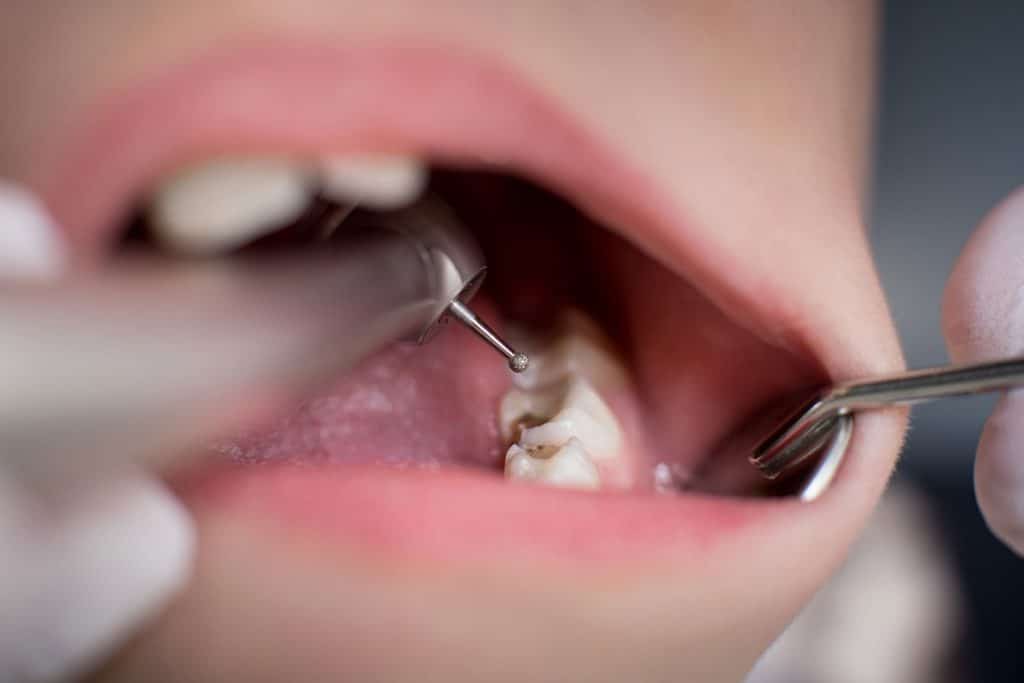How Long Should a Tooth Hurt After a Filling

Are you wondering why your tooth is still hurting weeks after getting a filling? Don’t worry—it’s typically expected for a tooth to feel sensitive for a few days after a filling. However, any lingering discomfort or aching should subside within a few weeks. If the pain persists, it could be a sign of an underlying issue that needs attention.
Discomfort doesn’t necessarily mean something is wrong. It’s often expected, as dental procedures can temporarily irritate the tooth’s nerve. However, if the pain extends beyond four weeks, it’s time to contact your dentist. Chronic sensitivity may indicate a more serious issue that requires professional assessment.
What Causes Tooth Sensitivity After a Filling?
Tooth sensitivity after a dental filling can feel like a sharp or dull ache, especially when exposed to something very cold or hot. Over 45 million American adults experience tooth sensitivity, which is most often caused by the nerves inside the tooth becoming irritated or inflamed after the dental procedure.
Typically, this sensitivity fades within days or weeks. However, if it continues for longer, it could signal an issue that needs treatment to prevent further complications.
Factors That Contribute to Post-Filling Sensitivity
Here are some common factors that may prolong tooth discomfort after a filling:
1. Incorrect Placement of the Dental Filling
Sometimes, the filling may not fit your bite properly. If the filling is too high or uneven, it can interfere with how your teeth come together when you chew. This misalignment may expose the tooth to wear, cracks, or even breakage, leading to sensitivity. Fortunately, your dentist can adjust or reshape the filling to resolve this issue.
2. Infection
Although rare, there’s a small chance of infection developing after a filling procedure. If bacteria reach the inner layers of the tooth, it can cause pain, swelling, and sensitivity. In such cases, you might need additional treatment, such as antibiotics or a root canal, to address the infection.
3. Physical Damage to the Tooth or Filling
A filling or tooth may crack or chip from physical stress, like biting down on something hard. When this happens, the tooth’s inner layers, including the nerves, can become exposed, causing sharp sensitivity when eating or drinking something hot, cold, or sweet. Your dentist should quickly repair a damaged filling to prevent further complications.
4. Naturally Sensitive Teeth
If you already have sensitive teeth, you may notice an increase in sensitivity after a filling. People with naturally thinner enamel are more prone to sensitivity, as the nerves inside their teeth are less protected. This sensitivity can often be managed by using desensitizing toothpaste, maintaining good oral hygiene, and rinsing with warm salt water.
5. Allergic Reaction to Filling Material
In rare cases, a patient may have an allergic reaction to the material used for the dental filling. This could lead to sensitivity or discomfort. If you’ve ever had an allergic reaction to dental materials in the past, make sure to inform your dentist before undergoing the procedure. Your dentist can use alternative filling materials to prevent this issue.
When to Contact Your Dentist About Tooth Sensitivity
So, how do you know if your post-filling sensitivity is a cause for concern? Mild sensitivity that fades within a few weeks is normal. However, if the discomfort lasts for months or becomes increasingly painful, there may be an underlying problem that needs attention.
You should contact your dentist if you experience:
- Pain that doesn’t improve after four weeks
- Sharp, sudden pain or sensitivity when biting down
- Visible cracks or damage to the filling or tooth
- Swelling, redness, or signs of infection
- Persistent sensitivity to hot, cold, or sweet foods
Your dentist will examine the affected tooth and determine the root cause of your discomfort. Whether it involves reshaping the filling, treating an infection, or addressing sensitivity, a professional can provide the right solution to relieve your pain.
How to Manage Tooth Sensitivity at Home
While waiting for your dental appointment, you can take steps to manage mild sensitivity at home and ease your discomfort:
- Use toothpaste designed for sensitive teeth
- Rinse your mouth with warm salt water to reduce irritation
- Avoid consuming very hot, cold, or sweet foods and drinks
- Use a soft-bristled toothbrush to avoid further irritation
These measures can help minimize sensitivity, but they’re not a substitute for professional care if the pain persists.
Call Fort Collins Dental Center Today
Don’t let lingering tooth sensitivity or pain disrupt your life. If you’re feeling discomfort weeks after a filling, it’s time to consult a professional. Call Fort Collins Dental Center today to schedule an appointment and get the expert care you need. Our team will identify the issue and provide a tailored solution to restore your comfort and oral health.
Take the first step toward relief—call us at 970-482-1477 today!
